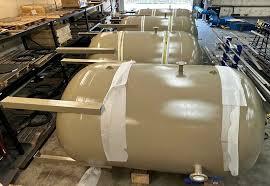Chemical Reactors – Essential Equipment for Controlled Chemical Processing

A Chemical Reactor is one of the most critical pieces of equipment used across industries that involve chemical transformations. From pharmaceutical manufacturing to petrochemical refining, reactors provide the controlled environment required for safe, efficient, and accurate reactions. The performance of a chemical reactor directly impacts product quality, production speed, and operational safety. As industries continue to adopt advanced technologies, modern reactors deliver higher reliability, precision, and automation capabilities.
Understanding Chemical Reactors
A Chemical Reactor is essentially a vessel specifically designed to carry out chemical reactions under controlled conditions such as temperature, pressure, mixing, and reaction time. Unlike regular process tanks, reactors are engineered with features that allow precise control of reaction parameters.
Types of Common Reactors
Different applications require different reactor designs. Some widely used types include:
-
Batch Reactors: Ideal for small-scale or multi-step reactions.
-
Continuous Stirred Tank Reactors (CSTR): Used for large-scale, continuous production.
-
Plug Flow Reactors (PFR): Common in petrochemical and polymer industries.
-
Tubular Reactors: Suitable for high-pressure and high-temperature processes.
-
Jacketed Reactors: Equipped with heating/cooling jackets for thermal control.
Each type serves a specific purpose based on the complexity and nature of the reaction.
Key Features and Benefits of Modern Chemical Reactors
1. Precise Temperature Control
Temperature fluctuations can affect reaction outcomes. Advanced reactors use heating jackets, internal coils, or external heat exchangers to maintain uniform temperature.
2. High Safety Standards
Reactors are built to handle high-pressure and exothermic reactions safely, with robust design, pressure-relief systems, and certified materials.
3. Efficient Mixing
Agitators and mixers ensure proper blending of reactants for homogeneous reactions, improving overall efficiency.
4. Automation and Process Integration
Modern reactors integrate with SCADA, PLC, or digital monitoring systems, enabling real-time process control and better quality management.
5. Material Compatibility
Reactors are available in SS304, SS316, Hastelloy, glass-lined, and other corrosion-resistant materials to handle acidic, alkaline, or reactive chemicals.
6. Customizable for Different Applications
Reactors can be designed with different capacities, geometries, agitation systems, and pressure ratings based on process needs.
Applications of Chemical Reactors
Chemical reactors play a crucial role in various industries, such as:
-
Pharmaceutical Manufacturing: For API synthesis, formulation, and mixing.
-
Chemical Processing: For producing solvents, resins, adhesives, and intermediates.
-
Petrochemical Industry: For refining processes, cracking, and polymerization.
-
Food & Beverage: For controlled blending, pasteurization, and fermentation.
-
Agrochemicals: For pesticide and fertilizer formulation.
-
Cosmetics: For creams, lotions, fragrances, and active ingredient processing.
These applications highlight the diversity and importance of reactors in modern production environments.
Why Industries Prefer Advanced Chemical Reactors
A high-quality Chemical Reactor improves operational performance and end-product reliability. Here’s why industries rely on them:
-
Improved batch consistency and product quality
-
Higher energy efficiency and reduced operational costs
-
Safer handling of volatile or hazardous chemicals
-
Better yield and reduced material wastage
-
Compatibility with clean-in-place (CIP) and sterilize-in-place (SIP) systems
Such benefits make chemical reactors a valuable asset in both small-scale and large-scale manufacturing units.
Conclusion
A Chemical Reactor is essential for achieving controlled, safe, and efficient chemical processing. With advancements in engineering and process automation, modern reactors offer superior performance, precise control, and long-term durability. Whether used in pharmaceuticals, chemicals, food, or petrochemicals, selecting the right reactor significantly improves productivity and product consistency. As industries continue to innovate, customized and automated reactor systems will play an even more important role in future manufacturing technologies.
FAQs
1. What is a Chemical Reactor?
A chemical reactor is a vessel designed to carry out chemical reactions under controlled temperature, pressure, and mixing conditions.
2. Which industries use chemical reactors?
They are widely used in pharmaceuticals, petrochemicals, food processing, agrochemicals, cosmetics, and chemical manufacturing.
3. What materials are reactors made of?
Common materials include Stainless Steel (SS304/316), Hastelloy, titanium, and glass-lined steel for corrosive applications.
4. How do reactors maintain temperature?
Reactors use external jackets, internal coils, or heat exchangers to control heating and cooling during reactions.
5. Can chemical reactors be customized?
Yes, reactors can be customized based on volume, pressure rating, agitation type, material, and automation level.
- AI
- Vitamins
- Health
- Admin/office jobs
- News
- Art
- Causes
- Crafts
- Dance
- Drinks
- Film
- Fitness
- Food
- Jogos
- Gardening
- Health
- Início
- Literature
- Music
- Networking
- Outro
- Party
- Religion
- Shopping
- Sports
- Theater
- Wellness


